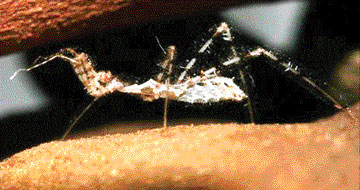|

Enforce ban on smoking and alcohol -
NATA chief
by Ananda KANNANGARA
The ban imposed on the sale of tobacco related products and alcohol
at places in close proximity to schools and other educational
institutions must be strictly enforced by the law enforcement officers,
Chairman, National Authority on Tobacco and Alcohol (NATA),Prof. Carlo
Fonseka said.
He told the Junior Observer that a number of complaints regarding the
using of cigarettes and alcohol by schoolchildren in the country are
received by the Authority.
He said that it was the duty of not only school principals and
teachers but also parents as well as elders to be vigilant on the
behaviour of children.
"On the other hand, most schoolchildren could easily get used to
cigarettes and alcohol as they are freely available at shops and wayside
kiosks close to schools.
He added that the sale of these items must also be banned from being
sold near temples, churches, kovils and mosques.
Quoting statistics Prof. Fonseka said that in the last century over
100 million people including children all over the world died due to
tobacco related diseases.
He warned that if the already imposed law on tobacco control is not
monitored by the authorities, considering it as a urgent need ,it could
have a dangerous impact on the lives of the future generation of the
country.
Extinction rate at its highest today
Experts warn it is the worst since
dinosaurs vanished:
NAGOYA, Japan - The world cannot afford to allow nature's riches to
disappear, the United Nations said recently at the start of a major
meeting to combat losses in animal and plant species that underpin
livelihoods and economies.
 The
United Nations says the world is facing the worst extinction rate since
the dinosaurs vanished 65 million years ago, a crisis that needs to be
addressed by governments, businesses and communities. The
United Nations says the world is facing the worst extinction rate since
the dinosaurs vanished 65 million years ago, a crisis that needs to be
addressed by governments, businesses and communities.
"We are destroying life on Earth," Achim Steiner, Head of the U.N.
Environment Program, said at the opening of a two week meeting in
Nagoya, central Japan last month.
The two-week meeting aims to prompt nations and businesses to take
sweeping steps to protect and restore ecosystems such as forests,
rivers, coral reefs and the oceans that are vital for an ever-growing
human population.
These provide basic services such as clean air, water, food and
medicines that many take for granted, the United Nations says, and need
to be properly valued and managed by governments and corporations to
reverse the damage caused by economic growth.
More resilient ecosystems could also reduce climate change impacts,
such more extreme droughts and floods, as well as help fight poverty,
the world body says.
Scientists warn that unless people start doing more to protect
species, extinctions will spike and the intricately interconnected
natural world will be damaged with devastating consequences.
They estimate that the Earth is losing species at 100 to 1,000 times
the historical average and warn that's pushing the Earth toward its
sixth big extinction phase, the greatest since the dinosaurs were wiped
out 65 million years ago.
"We're on the verge on the major extinction spasm," said Russ
Mittermeier, president of Conservation International and a field
biologist who has spent decades studying primates and reptiles. "Healthy
ecosystems are the underpinnings of human development." Mittermeier said
that in his field, of the 669 different kinds of primates, 49 percent
are threatened, largely because of habitat destruction and hunting.
"That's indicative of a real extinction risk," he said. Delegates
from nearly 200 countries are being asked to agree to new 2020 targets
after governments largely failed to meet a 2010 target of achieving a
significant reduction in biological diversity losses.
Assassin bug lures spiders by
mimicking prey
Scientists have described how a species of insect lures spiders by
mimicking prey caught in webs.
Assassin bugs plucked the web's silk threads that replicate the
vibrations of a fly or other insect, causing the fooled spider to head
towards the bug.
 Once
within reach, the bug slowly tapped the spider with its antennae before
lunging and stabbing the lured arachnid with its sharp snout. Once
within reach, the bug slowly tapped the spider with its antennae before
lunging and stabbing the lured arachnid with its sharp snout.
The findings appear in the journal Proceedings of the Royal Society
B.
The team from Macquarie University, Australia, said the behaviour -
known as aggressive mimicry - was one of two strategies employed by the
bug (Stenolemus bituberus) to trap its prey. The other involved
"stalking" spiders, where the assassin bug slowly approaches the
unsuspecting victim until within striking range.
The researchers, Drs Anne Wignall and Phil Taylor, explained that the
bug exploited web-building spiders' use of vibrations to detect and
locate its prey. "However, reliance on vibratory cues and predictable
responses leaves web-building spiders vulnerable to predators that
aggressively mimic prey stimuli to gain control over their behaviour,"
they wrote.
In their study, the pair set out to compare the responses of spiders
to the presence of prey in their webs with the arachnids' response to
the assassin bugs' behaviour. "Other vibrations in spider webs include
mates and debris, and these were potential models for aggressive
mimicry," they observed.
"Hence, we also compared spider behaviour in response to courting
males and leaves falling into the web."
In their results, the team noted that there were "significant
differences" to the various sources of vibrations.
They found that the spiders did not tend to respond to leaves falling
on the webs, and female spiders responded to males by "entering a
characteristic copulatory position".
But how spiders responded to the bugs was extremely similar to how
the spiders responded to prey, they observed. "To a spider, the
vibrations generated by bugs resemble small or exhausted prey.
"The responses of spiders to prey in the web were occasionally
characterised by a direct and rapid approach towards prey without pause
(reaching it within one second)."
But, they explained: "This response was.. observed towards bugs or
other sources, and may be elicited by the presence of higher frequency
and amplitude vibrations in the struggles of prey." However, spiders can
be a formidable opponent for the assassin bug if they move quickly
across the web to the potential predator.
"We have observed bugs being counter-attacked, killed and eaten by
the spider they were hunting," they added. "This risk may be
considerably increased when the spider approaches rapidly and without
pause.
"Bugs, hence, appear to aggressively mimic a broad class of prey-like
vibrations that are effective at soliciting approaches but are also
unlikely to elicit highly aggressive, dangerous responses." -BBC
|

